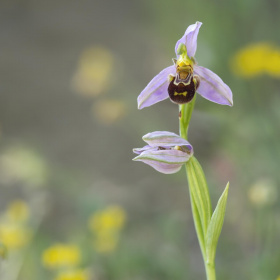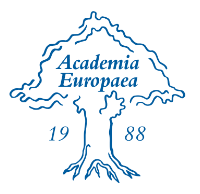News
Frontlines of Urban Conservation and Restoration - the Urban Sustainability thematic mission holds a public event at MTA on 22 March 2023
European experts of urban conservation, environmental biology and ecology gather to picture an eco-friendly future for cities

On 22 March 2023, the "Urban Sustainability" thematic mission of the AE Budapest Hub organizes a special session at the Hungarian Academy of Sciences (MTA) where experts from Germany, Italy, Poland, the Czech Republic and Hungary will share their latest findings in the area of urban conservation and restoration of natural habitats. The title of the event is: “Frontlines of Urban Conservation and Restoration”, it will be held in hybrid format, that is with in-person attendance in the Small Lecture Room (2nd floor) at the Palace of the Hungarian Academy of Sciences (address: 1051 Budapest, Széchenyi István tér 9.), and online. Some of the speakers will join via Zoom, while the online audience can follow the event through live streaming on the Youtube Channel of the Hungarian Academy of Sciences.
Registration for the event is open here: https://forms.gle/CWNgsFNnhw4RxLHw9.
The abstract of the session provided by co-organizers Prof. Péter Török (DSc., University of Debrecen, AE Budapest Knowledge Hub) and Prof. Péter Batáry (DSc., Centre for Ecological Research):
Urbanisation is one of the most important challenges for natural communities in the 21st century. Urbanisation – as a process in which there is an increase of concentration of human population in cities – leads not only to the change of land use and cover but involves a set of demographic, sociocultural, economic, technological, and environmental changes. Urbanisation is considered one of the most pressing human activities, which causes the homogenisation of flora and fauna, provides space for plant and animal invasions, and also changes the local climate through the heat island effect. Urban green spaces play a decisive role in the mitigation of these negative effects towards suburban and rural habitats and also provide a set of ecosystem services for cities. Thus, habitat conservation and restoration actions focusing on cities and understanding urbanisation effects on natural communities are vital. With this special session, we would like to invite researchers from Hungary and abroad to facilitate their networking and communication by highlighting hot topics in urban conservation and restoration.
Schedule of the program:
10:30-10:35 Welcome by the AE Budapest Knowledge Hub – Prof. Péter Török, Co-chair, Urban Sustainability Thematic Mission, Academia Europaea Budapest Knowledge Hub
Section 1
10:35-12:15 Presentations of the foreign researchers with discussion (15+5 min. each) - Moderator: Prof. Péter Batáry
10:35-10:55 Land sharing in urban gardens: ecosystems for biodiversity conservation and health restoration – Prof. Monika Egerer, Urban Productive Ecosystems, School of Life Sciences, Technical University of Munich, München, Germany - ONLINE
10:55-11:15 Colourful ribbons for our cities: The importance of flower patches along traffic roads as temporary habitats for pollinators – Prof. Christina Fischer, Anhalt University of Applied Sciences, Bernburg, Germany
11:15-11:35 Quantifying the plant functional specialization of urban habitats using Grime’s CSR strategies – Prof. Carlo Ricotta, Department of Environmental Biology, University of Rome 'La Sapienza', Rome, Italy
11:35-11:55 Urban landscapes as a habitat for pollinator communities – Dr Weronika Banaszak-Cibicka, Department of Zoology, Poznań University of Life Sciences, Poznań, Poland
11:55-12:15 Exploring bird's responses to urbanization in European cities: From community metrics to individuals' behaviour – Prof. Federico Morelli, Community Ecology & Conservation, Czech University of Life Sciences Prague, Czech Republic – ONLINE
12:15-12:45 Lunchbreak (Sandwich lunch)
Section 2
12:45-14:25 Presentations of the Hungarian researchers with discussion (15+5 min. each) - Moderator: Prof. Péter Török
12:45-13:05 Effects of land use on streams: traditional and functional analyses of benthic diatoms – Dr Csilla Stenger-Kovács, Limnology Research Group, University of Pannonia, Veszprém, Hungary
13:05-13:25 Evolutionary ecology of anthropogenic habitat conversion in amphibians: stress and sex – Dr Veronika Bókony, Department of Evolutionary Ecology, Plant Protection Institute, Centre for Agricultural Research, Eötvös Loránd Research Network, Budapest, Hungary
13:25-13:45 What did we learn from urban ecological meta-analyses? – Prof. Péter Batáry, “Lendület” Landscape and Conservation Ecology Research Group, Centre for Ecological Research, Vácrátót, Hungary
13:45-14:05 Urban biodiversity and the urban homogenization hypothesis – Prof. Béla Tóthmérész, University of Debrecen, Department of Ecology, Debrecen, Hungary
14:05-14:25 Urbanization effects on the cognitive abilities and behaviour of birds – Dr Ernő Vincze, Department of Biology, Lund University, Lund, Sweden; ELKH-PE Evolutionary Ecology Research Group, Centre for Natural Sciences, University of Pannonia, Veszprém, Hungary - ONLINE
14:25-14:30 Closing remarks (Prof. Péter Batáry)


